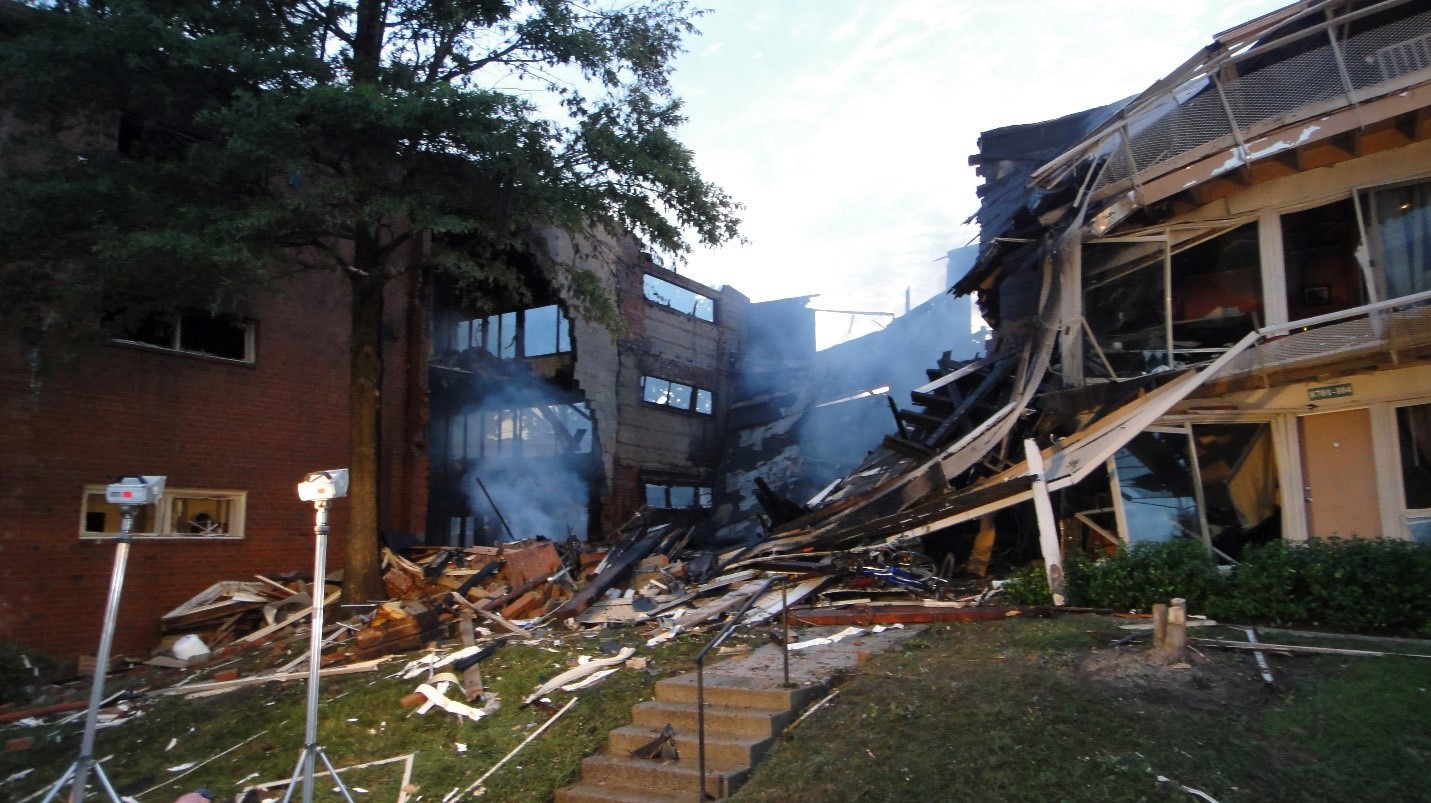The National Transportation
Safety Board,
during a public meeting held Tuesday, determined the failure of an indoor
mercury service regulator with an unconnected vent line led to the fatal Aug.
10, 2016, natural gas fueled explosion and fire in a Maryland apartment
building.
The unconnected vent line and failed service regulator
resulted in a leak of natural gas that accumulated in the apartment building’s
meter room until it reached explosive levels and ignited. The explosion and
fire in part of the
Silver
Spring, Maryland, Flower Branch apartment complex,
resulted in seven deaths, and 65 residents and three firefighters were
transported to local medical facilities. Both the building where the explosion
occurred, and an attached apartment building were damaged.

This front view of the accident scene shows two
explosion-damaged buildings on Arliss Street, Silver Spring, Maryland. Building
8701 is located at the right center and building 8703 is located at the left of
the photograph. (Photo provided by Public Service Commission of Maryland)
In its report released
Tuesday, the NTSB says that leading up to accident, there
was no evidence that residents, building management, or any emergency personnel
notified Washington Gas of a gas odor. The
investigation revealed that had
Washington
Gas been notified of a
previous gas odor call two weeks earlier, the Aug. 10 explosion could possibly
have been prevented by a service technician entering the meter room of the
building, identifying the unconnected vent line, and remedying the situation. Further, the NTSB noted the use of gas
odorants alone does not sufficiently warn individuals in some cases of a gas
system leak, such as the undetected leak that occurred in this accident.
“The NTSB’s investigation highlighted serious flaws in the
inspection of service regulators,” said NTSB Chairman Robert L. Sumwalt. “This tragic event could have been avoided if the necessary
checks were done to ensure the safety of the building’s occupants.”
NTSB investigators concluded that without a requirement for
technicians to verify the connection of vent lines for indoor mercury service
regulators, such vent lines could inadvertently be left open following service
work. Had the mercury service regulators been located outside the building, the
explosion would not have occurred.
However,
had methane detectors been installed in the building, an alarm would have
alerted residents to a gas release and reduced the potential and consequences
of a natural gas explosion. Therefore,
the NTSB is recommending the installation of fixed methane detectors that go
beyond relying on smell. The odorant in natural gas provides some warning but
methane detector alarms can provide a reliable additional safeguard.
As result of the
investigation the NTSB issued a total of 13 safety recommendations with five safety
recommendations issued to Washington Gas and two issued to both the
Pipeline and Hazardous Materials Safety Administration, and the Public Service Commission of Maryland.
The International
Code Council;
the National
Fire Protection Association, the Gas Technology Institute, and the International Academies of Emergency Dispatch each received one safety
recommendation.
An abstract of the final report, which includes the
findings, probable cause, and all safety recommendations, is available.
Links to the accident docket and related news releases
for this investigation are available at https://go.usa.gov/xmYYG.
To report an incident/accident or if you are a public safety agency, please call 1-844-373-9922 or 202-314-6290 to speak to a Watch Officer at the NTSB Response Operations Center (ROC) in Washington, DC (24/7).